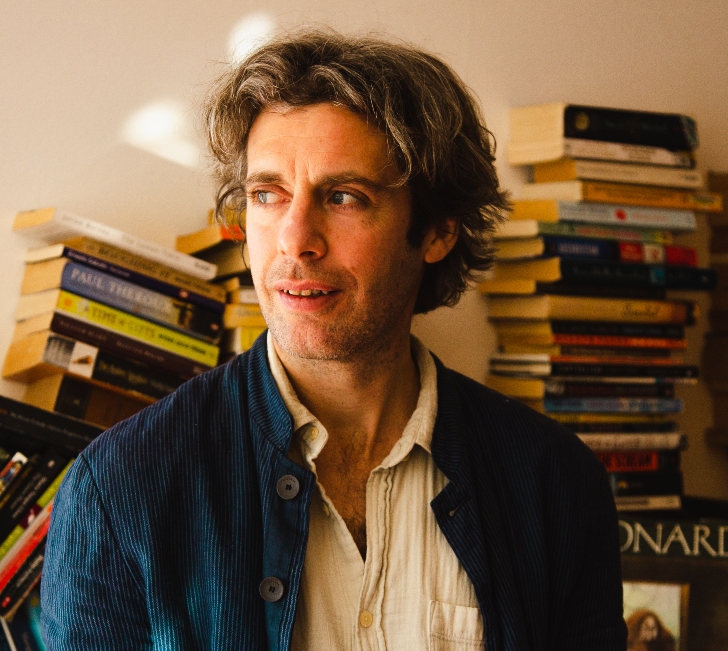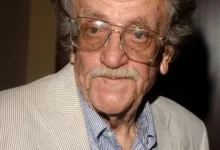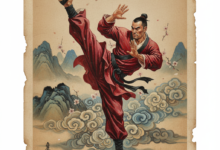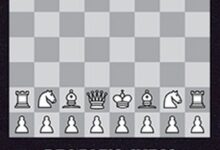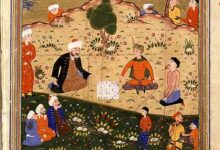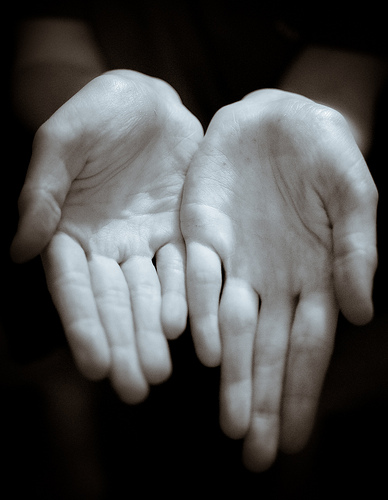
Leonard Leben was born into a wealthy family in 1521. His father died of typhoid leaving Leonard and his mother alone in a large mansion in the English countryside. Leonard’s mother transferred all of her love for her husband onto her son and resolved to never let him come to any harm.
She banished from her home all knives, scissors and needles so that nothing might ever cut him, obliging the cooks to prepare only the vegetables they could crush with a wooden spoon. She removed all the shelves in the house so that nothing might ever drop on him, locked the staircases and removed the legs from the beds so that he might never fall out of one. She placed nets around the garden in summer so that no stinging insects could enter and she ordered the gardeners to remove all the thorns from the roses that grew there.
She dismissed all the female servants so that Leonard might never know the pain of love and desire, and she fired the male servants the moment they reached 30 years of age so that Leonard might never have to see them grow old, decay and die; she herself wore a veil to hide her wrinkles and put henna in her hair to remove all traces of grey.
She banned all books from the house, knowing full well what havoc any stimulus to the imagination could wreak, and allowed only musical scores in the piano room with uplifting, major keys. When bad weather came in she mixed poppy husks in with Leonard’s morning milk to make him sleepy and inclined to stay indoors to play games with the servants – who were under strict instructions to always let him win.
And so Leonard grew up in a dream of sunny days, silk and rose water, where though the distant sound of approaching thunder might at times threaten the fragile bubble of innocence in which he lived, his mother would simply put cotton wool in his ears and chocolate in his mouth.
Leonard’s inevitable awakening happened at the age of 12 when just before dawn one morning he opened his eyes to the sounds of a scraping at his window. Propping himself up on one elbow and rubbing the dust from his eyes he saw a bird feebly struggle on the ledge outside. Imagining it was some kind of new game devised for his amusement, Leonard tried to pull the window open but then remembered his mother always kept it locked. Pricking his ears he could hear no one yet stirring in the house and so, trembling with excitement, he put on his silk bathrobe and velvet slippers and made his way to where the butler was snoring across the doorway of his room. Removing the key from the servant’s pocket, he quietly opened the door and slipped through the narrowest of gaps into the hallway of the house. Lifting the heavy latch of the front door, he crept outside into the garden and felt a delicious thrill as he found himself alone for the very first time in his life.
He hurried over to the window ledge intending to scoop the bird up in his hands but it took fright and desperately fluttered a few metres up onto the top of the garden wall. The wall was high and smooth with no footholds but Leonard had grown faster than his mother had anticipated and, by stacking up a couple of flower pots, he was able to make a running jump and scramble up on top to look out on a world he had never known.
What he saw almost caused him to fall off.
In the fields peasants were already working and their clothes were dirty and torn. Some had thin, grey hair and their faces were screwed up from exposure to the sun and the wind. Some were scarred and others walked with a limp and gave groans of discomfort when they bent their aching joints to pull out weeds from the earth. Along a broken old road came a rickety cart pulled by a donkey whose ribs pushed against its mangy skin as it struggled with all its might to pull a heavy load. The driver lashed the beast with his whip and Leonard felt the sting as though it had landed on his own shoulders. The putrid stink of rotten fruit floated up and shocked his nostrils, which until that point had only ever know sweet aromas. Then he sampled the unknown taste of salt as his first ever tears ran down his cheeks. Leonard briefly wondered whether he might be melting like the snow that sometime fell in the winter.
A flutter of feathers near to him brought his attention back to the dying bird that had led him up here. It no longer had the strength to resist as Leonard gathered it in his hands and he felt its heartbeat grow weaker by the second. A storm of anger and sadness erupted within him as he understood the depth of his mother’s grotesque deception, exemplified in the suffering of this tiny creature. He felt its bitter struggle for life as if it were his own until he could no longer say where his hands ended and the body of the bird began. They breathed the same air, loved the same life, their hearts beating in unison.
Then something quite exceptional happened. A wave of compassion burst open in Leonard’s heart and coursed through the veins of his arms and into the body of the bird which slowly lifted its head, gave a chirp and flew up onto his shoulder as if it were the most natural thing in the world.
Leonard gave a last glance of disgust back at the sanctuary of his childhood and then leaped down onto the ground, quite certain that he would never return.
Discovering a world of ageing, sickness and decay, wherever Leonard went he brought life. He extended his hands to the old and ill, healing and rejuvenating all those he met, He brought back youth to people, animals, even trees. He would perhaps even have extended his hands to the dying sun each evening had he not been afraid to extinguish the light of the stars that were born afresh each night.
Legend of Leonard spread through the land, of a boy with a bird on his shoulder who held the fountain of youth in his hands. He walked from village to village, sleeping in fields and barns, awaking to find a queue of the old and needy in front of him in the mornings. Reaching out his hands he removed the signs of stress and toil from faces, restored strength to old men and beauty in women who had not been looked upon with desire for decades. He regrew teeth in empty old gums, made hair sprout again on shiny scalps; joints became flexible again under his touch and scars simply vanished.
I suppose Leonard’s gift would eventually have been his downfall. Some rich merchant or prince would have made him their own private miracle-worker to give them eternal life. But before his fame could reach the cities, tragedy struck. The bird which had traveled with him since he had left his walled garden behind was flying above Leonard one afternoon, catching insects while he healed all-comers below, when a hawk suddenly swooped down from a great height. The bird fell to the ground, bleeding freely from the predator’s claws. Leonard would have hurried over to heal it but an old woman insisted that he make her young again first so that she might see what her grandchildren would grow up to be. By the time Leonard reached his only friend in the world, it was dead. He extended his hands to the tiny, limp body but the river of life within refused to flow. He closed his eyes and concentrated all his attention but the creature in his hands remained as lifeless as a lump of clay. Collapsing in grief, Leonard learned that while he had the power to restore youth and heal, he had no dominion over death.
When he finally rose he looked upon the world with new eyes. What a fool he had been. What arrogance to think that he could make a difference. The tide of death swept across the land every day and carried away souls both old and young – how could one man hold back the ocean? Death was surely the destiny of all things. He supposed even the sun would burn out and die for good one day. It was only a question of time.
He left the country and resolved to live like everyone else, using his talent only to find employment in the gardens of the rich who marvelled at his skill in bringing the best out of their plants and trees. Leonard allowed himself to grow old and learned what punishments Nature had in store for those who dared to live out their lives. He learned what it was to ache in his bones, for his sight and hearing to fail, his mind to work more slowly and he noticed how his employers smiled at his senility when they thought he wasn’t looking. He felt Death was on his trail and that the end would not be far away now. As the leaves fell that year he guessed it might be the last autumn of his life.
Then he saw her.
She was just a peasant girl, carrying branches for her family’s fire that night but as she walked barefoot across the earth she was like a poem, a walking tribute to Youth. Her skin shone like the morning sunlight, her hips swayed like the flowers in the breeze and there was a sparkle in her eyes that reminded Leonard of water springing up from the earth. Just one more time, he said to himself.
The young girl’s family were surprised and delighted to meet the charming young man who presented himself the next day at their hut with an offer of marriage. The girl herself was quite taken with the handsome suitor who seemed so knowledgeable and widely-traveled. What’s more, he was a doctor and when he lent his services to her parents they declared they felt years younger.
She and Leonard bought the large house, famous until recently for its wonderful flowerbeds under a talented old gardener, and began to live the happiest of lives together. They raised two fine sons who, thanks to their father’s expertise, survived every childhood illness from the measles to scarlet fever. But there were, of course, other forces that Leonard could not control. War broke out and though Leonard was by now to be called up by the army, his two sons went off to fight and never returned. He and his wife were heartbroken and it seemed that the grief caused them to age faster than time alone. He allowed a year to pass and then one afternoon he walked her into the bathroom.
‘All that was can be again!’ he told her gently and turned her to face the mirror, He stood behind her and raised his hands to remove the years from her face and restore her old grey hair to the luscious black it had once been. He smiled as she gasped but then she pulled herself free of his hands and stared at him as though he was a total stranger.
‘You’re a demon!’ she stammered in revulsion. He smiled again and tried to explain but she pushed past him and ran through to the kitchen. He stood looking at his own leathery face in the mirror for a few moments. Should he have told her before? But if not for the loss of their sons he never would have needed to. He restored youth to his own body and walked through to the kitchen to convince his wife his gift was a blessing rather than a curse. He found her lying in a pool of blood with a knife buried in her chest. He placed his hands on her at once but it was already too late.
Leonard never loved again. Women loved him, of course; I could see it in their eyes: this man who seemed to belong to another world, so little did he care about this one. From time to time he would allow himself to grow a little older with one of them but then he would disappear to reinvent himself somewhere else, ten years younger.
As the centuries passed, Leonard grew more and more lonely as all the illusions began to drop away. He learned that kings and queens were as human as anyone else, that the world was not at the centre of the universe and was certainly not flat. He watched as fashions came and went, wars were fought and lost, and religion slowly began to give way to reason. But so much knowledge, so much perspective, became too much of a burden to carry all by himself. The lives of others came and went so fast that he began to feel like a tree, watching gravely as each new generation arose, flourished, reproduced and then shrivelled up again, returning to the dust they had come from.
He no longer felt any desire to join them however. For all the injustice and vain foolishness of humanity, Leonard kept on going due to an insatiable curiosity. As the world began to change faster and faster, he remained alive simply to see what would happen next. All he needed was someone to talk to about it.
I first met Leonard in 1836. I was a bright young student in his philosophy class as the time and I was quite under the spell of this respected professor who seemed to have an answer to everything. A devout Christian, I asked him why Adam and Eve had only eaten from the Tree of Knowledge in the Garden of Eden – surely if they had eaten from the other Tree of Eternal Life then they would have had all the time in the world to learn all they wanted to know.
‘But who would want to live forever?’ he asked with a glint in his eye.
‘I, for one!’ I declared and we fell to laughing. Oh, how I wish I had never uttered those foolish words! I graduated, moved abroad and never expected to see Leonard again. It was forty years later, in the twilight of my life, that I opened the door of my house to see a young man who bore a striking resemblance to my old professor.
‘Might you be the grandson of Leonard Leben?’ I asked, not quite trusting my ageing memory. The visitor smiled, took my hand and, as if in a dream, I felt the decades drop off me in moments.
Now by that time science and the Age of Reason had destroyed my faith in religion but I did find myself briefly wondering whether I had made a pact with the devil. We sat and talked all night and when Leonard departed in the morning I was convinced not only by the reality of the miracle but was filled with a new zest for life. I had the chance to do it all again! To learn from my mistakes and live life to the fullest!
Leonard continued to drop by every few years to keep me young and discuss the changing times, but I found myself looking forwards less and less to his visits. For though I witnessed the birth of new ideas, marvellous new inventions and sweeping social revolutions, in my heart I suspected that Progress was something of a smokescreen. Humanity wasn’t getting any better, after all. For all our bold new beliefs and impressive tools, it was self-interest that continued to make the world turn. The cost of living seemed to always be a price we hoped someone else would pay.
Or perhaps I just began to see the world through the lens of my own personal tragedy. Condemned to mourn all those I had loved, my heart broke too many times to ever heal again and I longed to join my wives and children in the grave. But, see, no matter where I hide myself, Leonard always finds me. I went off to wars in the hope of catching a stray bullet but the one time a piece of shrapnel lodged itself in my chest, an all-too-familiar face turned up to be my doctor in the medical tent.
Naturally, I thought about suicide. Even tried it a couple of times. But I learned there are people who can do it and people who can’t. When it came down to it, I could no more take my own life than I could eat a rock or breath underwater.
And so here I am. A prisoner of life. A hostage in time. Denied my right to die until Leonard finally lets me go.


